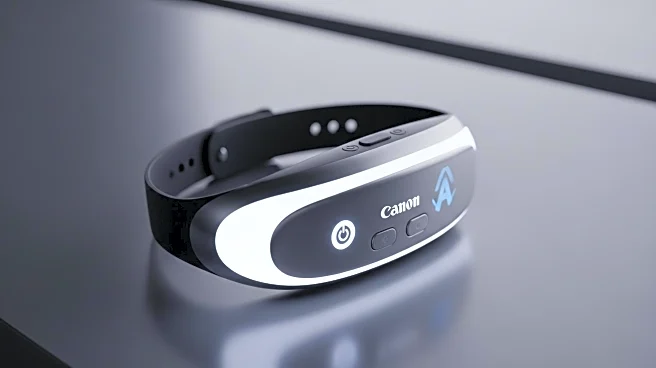What's Happening?
The Massachusetts Institute of Technology (MIT) has introduced a new wearable device called the Ego-Meter, designed to track self-talk and ego-centric thinking in real time. Developed by the Affective Computing group at the MIT Media Lab, the device aims to help users become more aware of their emotional states and reduce self-focused habits. The Ego-Meter was unveiled at a tech symposium in Cambridge, Massachusetts, where it was presented to an audience of tech enthusiasts and researchers. The device uses physiological signals such as heart rate variability, galvanic skin response, and voice analysis to provide feedback on ego-centric thinking, encouraging users to adopt more balanced mindsets.
Why It's Important?
The introduction of the Ego-Meter reflects a growing trend in the U.S. towards integrating technology with mental wellness practices. As interest in mental health and mindfulness continues to rise, devices like the Ego-Meter offer innovative ways to promote emotional regulation and self-awareness. By providing real-time feedback, the device could help users manage stress and improve interpersonal relationships by curbing self-absorbed behaviors. This development aligns with broader national conversations about emotional well-being and the increasing popularity of mental health apps and wearables.
What's Next?
As the Ego-Meter is still in the prototype stage, further development and refinement are expected before it becomes widely available. Feedback from the tech symposium will likely inform future iterations, focusing on user-friendliness and accuracy. The device may eventually integrate with smartphones or other wearables, expanding its accessibility and appeal. As MIT continues its research, the Ego-Meter could become a staple in the wellness tech market, offering a tangible tool for those seeking to enhance their emotional health.
Beyond the Headlines
The Ego-Meter's ability to quantify ego-centric thinking bridges the gap between affective computing and spiritual practices, potentially inspiring similar innovations in the tech industry. However, challenges such as data privacy will need to be addressed as the device moves towards commercialization. The prototype's promise lies in its potential to make abstract concepts like ego measurable and manageable, contributing to the broader discourse on the role of technology in personal development.










